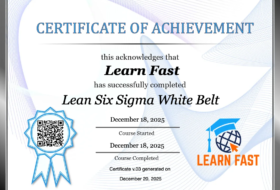As Chihiro Nakao aptly puts it, “Kaizen eyes see 1000 things needing improvement.” This powerful concept of continuous improvement has been embraced by Toyota and has proven to be a catalyst for success in both business and professional endeavors. In contrast, accepting eyes simply see things as they are and resign themselves to accepting the status quo without any effort to make positive changes.
Toyota-style kaizen demonstrates that the presence of numerous constraints should not be viewed as barriers but rather as opportunities for creative problem-solving. By adopting the kaizen mindset, individuals and organizations can uncover alternate paths to success, even in the face of complex challenges.
Kaizen, which translates to “change for the better,” is a philosophy that encourages ongoing improvement in all aspects of life. It emphasizes the importance of small, incremental changes that, over time, lead to significant progress. This approach rejects complacency and mediocrity, pushing individuals and organizations to constantly strive for excellence.
One of the key principles of kaizen is the rejection of “accepting eyes.” Accepting eyes are those that passively observe the current state of affairs without questioning or seeking improvement. In contrast, kaizen transforms these accepting eyes into “rejecting eyes” — eyes that reject both the status quo and limited thinking.
By cultivating rejecting eyes, individuals and organizations can develop a mindset that actively seeks out opportunities for improvement. This shift in perspective allows for the identification of numerous areas in need of enhancement, leading to a continuous cycle of growth and progress.
Toyota, one of the pioneers of kaizen, has successfully applied this philosophy to revolutionize their manufacturing processes. The Toyota Production System, often referred to as “lean manufacturing,” is built on the principles of kaizen. By empowering employees at all levels to identify and address inefficiencies, Toyota has been able to achieve remarkable levels of productivity and quality.
However, the power of kaizen extends far beyond the manufacturing sector. It can be applied to any industry or profession, enabling individuals and organizations to unlock their full potential. Adopting a kaizen mindset requires a commitment to ongoing learning, self-reflection, and a willingness to embrace change.
Embracing kaizen means recognizing that there is always room for improvement, regardless of how successful or accomplished one may be. It involves challenging conventional thinking, questioning established processes, and seeking innovative solutions. By doing so, individuals and organizations can stay ahead of the competition and continuously evolve to meet the changing needs of their customers.
Furthermore, kaizen encourages collaboration and teamwork. It emphasizes the importance of involving all stakeholders in the improvement process, fostering a culture of shared responsibility and continuous learning. By harnessing the collective wisdom and diverse perspectives of a team, kaizen enables the generation of creative and effective solutions to complex problems.
In conclusion, the power of kaizen lies in its ability to transform accepting eyes into rejecting eyes. By embracing continuous improvement and rejecting the status quo, individuals and organizations can unlock their full potential and achieve success in their respective fields. Kaizen is not just a philosophy; it is a way of life that fosters a culture of excellence, innovation, and continuous growth. So, let us all adopt the kaizen mindset and embark on a journey of lifelong improvement.









